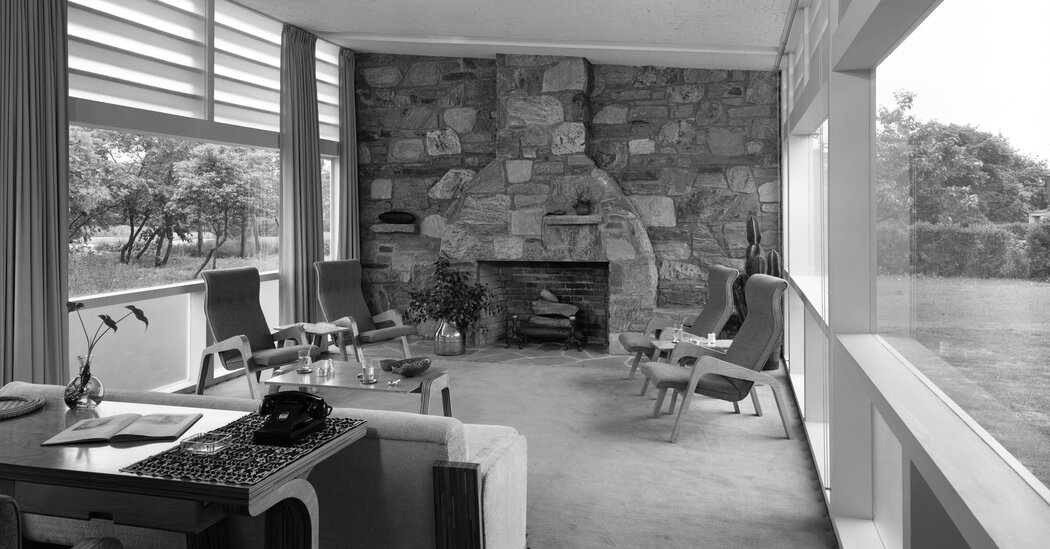On occasion throughout my 21 years as a TV critic at this paper, I’ve been moved to defend public broadcasting towards common right-wing makes an attempt to defund it. The distinction now — effectively, one distinction — is we live in a time with out guardrails, when the ethos on the prime appears to be Do What You Need, Lie Outrageously and Belief That You’ll Get Away With It, when all kinds of hard-won, long-established public items are being crippled by govt caveat and previously more-or-less impartial establishments scramble to color the roses purple with a view to hold their heads.
On Wednesday, PBS Chief Govt Paula Kerger, and Katherine Maher, who heads NPR, testified earlier than Congress, primarily to bat off prices of liberal bias and to make the case that public broadcasting is a precious social good, to politicians who don’t essentially worth social items.
It’s tragicomical that this listening to — underneath the identify “Anti-American Airwaves: Holding the Heads of NPR and PBS Accountable,” in the event you want any higher indication of a thoughts already made up — was being led by Georgia Republican Rep. Marjorie Taylor Greene, who known as PBS and NPR “radical left-wing echo chambers” for what she whimsically imagines to be “a narrow audience of mostly wealthy, white, urban liberals and progressives who generally look down on and judge rural America.” As an inveterate espouser of lunatic conspiracy theories, Greene — who has usually accused Democratic politicians of homicide, pedophilia and satanism and characterizes public media as “communist” — would possibly pretty be stated to occupy a radical right-wing echo chamber. For those who reside in a fantasy world, information are all the time going to look a bit loopy.
Katherine Maher, left, and Paula Kerger needed to bat off prices of liberal bias and make the case that NPR and PBS are precious social items.
(Andrew Harnik / Getty Photographs)
Opponents, together with the present FCC chair Brendan Carr, argue that within the new media panorama, with its Cheesecake Manufacturing facility menu of decisions, there is no such thing as a purpose for public media to exist and positively no purpose for the federal government to provide it any cash — an concept to which it’s already indisposed. (Carr’s calling for an investigation into company sponsorship — questioning whether or not the temporary filmed spots earlier than a present represent forbidden commercials — strikes me as meant to chop one other leg from desk.) Such claims replicate a misinformed, incurious studying of how public broadcasting works, what it does and whom it serves.
For one factor, it’s free; if you wish to get technical and say tax {dollars} fund it, it’s, for the buyer, nearly as good as free — an estimated $1.50 per American per 12 months. The appropriation for the Corp. for Public Broadcasting ($535 million for fiscal 2025), which funnels funds to some 1,216 independently operated public radio stations and 365 public tv stations, accounts for lower than a hundredth of a p.c of the federal price range. These grants make up a minor slice of a station’s working bills (a median of 8% for radio and 17% for tv), which additionally depend upon viewers contributions, basis grants, trusts and company underwriting; but in much less prosperous, extra distant areas, which the CPB was shaped partly expressly to serve, they is likely to be all that retains the lights on.

Documentary filmmaker Ken Burns has been a mainstay of PBS, which has helped fund his documentaries on topics just like the Civil Battle, baseball and the American buffalo.
(Mark Sommerfeld / For The Instances)
Stations could subscribe to PBS and NPR — or not — or look to a mixture of different sources for programming, together with American Public Tv; the Unbiased Tv Service, house to the nice documentary collection “Independent Lens”; the Public Radio Alternate (PRX), which produces “Left, Right and Center,” “This American Life” and “The Moth”; and American Public Media, creator of “Marketplace” and “The Splendid Table.” Many create their very own exhibits — KCET’s nice “Artbound,” “SoCal Connected” and “Lost L.A.,” LAist’s “Airtalk With Larry Mantle” and KCRW’s “Press Play With Madeline Brand,” to call however a number of native examples.
However I doubt Greene or her like-minded colleagues have spent a lot, or any time, watching PBS or listening to NPR, past the minimal wanted to gas their outrage. The truth that the system is decentralized signifies that its viewers is neither city nor rural, white nor BIPOC, wealthy nor poor, coastal nor heartland — it’s all these issues, reflecting, and collaborating in, the group the place every station relies, giving every a person character. It’s the very reverse of elite and all in all presents a extra full image of the nation than you’re liable to search out elsewhere.
For those who dip into the pbs.org web site, the place applications from throughout the nation can be found to stream, most free of charge — a tax-deductible donation of $5 a month will get you a “PBS Passport” that unlocks the remaining — you will see “Michigan Out-of-Doors,” “Wyoming Chronicle,” “Kentucky Afield,” “Prairie Sportsman,” “Virginia Farming,” “Tennessee Crossroads,” the Indigenous “Native Report,” exhibits on woodworking, fishing, quilting and highschool sports activities. I might go on and on making this level. To name public media radical as a result of it makes room for concepts you would possibly discover objectionable is uninformed, delusional or mere performative partisan anti-wokeism.
Throughout 38 seasons, WNET’s “American Masters” has introduced (amongst many others) movies on a variety of artists, writers and creators, together with Patsy Cline, William F. Buckley, Truman Capote, Max Roach, Little Richard, James Baldwin, Laura Ingalls Wilder, Louisa Might Alcott, Brenda Lee, Bob Hope, Hank Williams, Woody Guthrie, Charles Schulz, Margaret Mitchell, L. Frank Baum, Frederic Remington, Will Rogers, Alice Waters, Sister Rosetta Tharpe, Twyla Tharp, Loretta Lynn, Rita Moreno, Nam June Paik, Hazel Scott and Liza Minnelli. “American Experience” from WGBH consists of amongst its library an 11-part documentary on the Vietnam Battle; multipart appears at presidents Theodore Roosevelt, Woodrow Wilson, Harry Truman, Ulysses S. Grant, John F. Kennedy, George H.W. Bush, George W. Bush and Jimmy Carter; the Nuremberg trials; the historical past of Las Vegas, of Mormons, of denims, of the civil rights motion (the majestic “Eyes on the Prize”), World Battle I, the Civilian Conservation Corps, “God in America,” the Stonewall Rebellion, the Wilmington Bloodbath, the Individuals With Disabilities Act and whaling. WGBH’S “Nova” (its newest subversive episode is on weapons of the Revolutionary Battle) focuses on science and expertise; WNET’S “Nature” appears on the world’s nonhuman inhabitants. (If, like Greene, you don’t imagine in evolution however assume hurricanes could also be weaponized, you may need some difficulties right here.)

“American Masters,” a collection that presents documentaries on cultural and creative figures, not too long ago featured Hazel Scott, a pioneering Black entertainer, in “The Disappearance of Miss Scott.”
(Everett)
Do I’ve a liberal bias? Nicely, I’m a liberal, so I suppose by definition I do. (Gulf of Mexico!) In response to Merriam-Webster, liberalism is “a political philosophy based on belief in progress and stressing the essential goodness of the human race, freedom for the individual from arbitrary authority, and protection and promotion of political and civil liberties … especially: such a philosophy calling for the government to play a crucial role in relieving social inequities (such as those involving race, gender, or class) and in protecting the environment.” That appears a nice constitution to me, and never a nasty description of public media at its greatest. “At NPR,” reads a press release (nonetheless up) on its web site, “diversity is not a program or initiative. It is an inextricable part of our mission to serve the American public.”
Make of it what you’ll.




